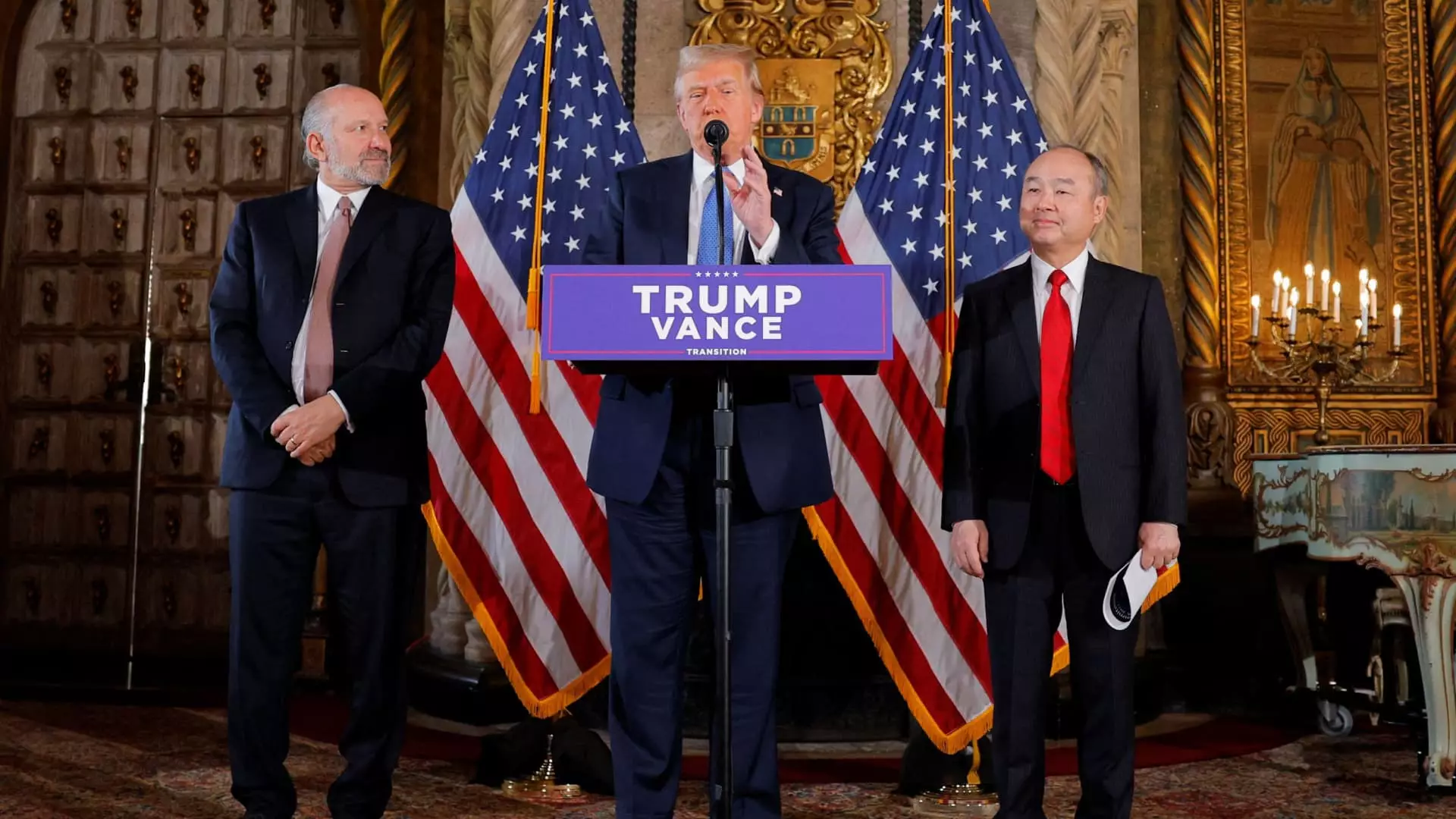In an era characterized by rapid technological advancements and shifting economic landscapes, SoftBank’s founder and CEO, Masayoshi Son, made headlines with a substantial commitment to investing $100 billion in the United States. This ambitious pledge, announced during a meeting with President-elect Donald Trump at Mar-a-Lago, signals not only a personal belief in America’s economic future but also the strategic focus of SoftBank towards artificial intelligence and related sectors over the next four years.
This isn’t the first time that SoftBank’s leadership has sought to strengthen U.S. job markets through significant financial contributions. A similar commitment made in 2016 resulted in a $50 billion investment that aimed to create 50,000 jobs. Trump’s reassurances during that announcement painted a bright future for America’s economic landscape, attributing confidence gains directly to the election result. The subtleties of these interactions reflect an interplay between political sentiments and corporate funding, illustrating how leadership changes can influence investment decisions.
Son’s remarks about increased confidence in the U.S. economy reveal a mindset that aligns corporate investment strategy with national optimism. Describing President Trump as a “double down president,” Son asserts a readiness to double the previous commitment, reinforcing the perception that confidence, whether genuine or strategically calculated, plays a critical role in rallying corporate giants around new initiatives. As the technology sector becomes increasingly intertwined with essential infrastructure, Son’s focus on job creation in AI and innovative technologies resonates with national priorities.
The financial mechanisms tied to this venture are structured through various channels affiliated with SoftBank. This includes the renowned Vision Fund, capital projects, and its majority stake in chipmaker Arm Holdings. Interestingly, a portion of the promised investments may not derive from new capital but could encompass previous investment announcements, such as SoftBank’s notable $1.5 billion stake in OpenAI, the parent company behind the popular AI model, ChatGPT. This multi-faceted approach hints at a cohesive strategy to accelerate technological developments while ensuring substantial job growth.
The spotlight on artificial intelligence as a primary target for this investment underlines burgeoning interest in this field. By concentrating resources on AI and associated infrastructures, SoftBank aims to position the U.S. at the forefront of tomorrow’s technological sphere. With growing concerns about job displacement due to automation, the pledge to create 100,000 jobs demonstrates a commitment not only to technology innovation but also to the workforce that will enable such advancements.
Son’s announcement at Mar-a-Lago can be interpreted as a pivotal moment for the U.S. investment landscape, characterized by a blend of optimism and strategic foresight. As SoftBank navigates this terrain, the anticipated infusion of capital aimed at job creation and technology development reflects broader national aspirations. The intertwined relationships between political leadership, investor confidence, and technological advancement underscore the complexities of contemporary economic strategies and their implications for the future of American industry.

